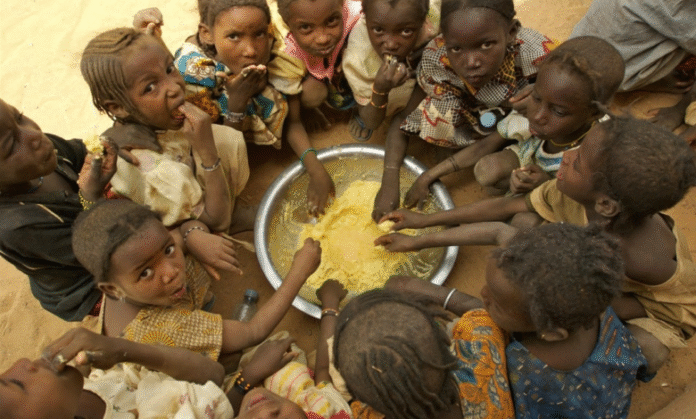Millions of malnourished children across Africa could be cut off from life-saving food within three months due to global aid cuts, a report released Thursday by Save the Children warned.
The report said at least four countries, Nigeria, Kenya, Somalia and South Sudan, are on track to run out of ready-to-use therapeutic food (RUTF), an emergency peanut paste that has saved millions of children over the past three decades. Without it, children suffering from severe acute malnutrition are nine times more likely to die from common infections.
In Nigeria, where 3.5 million children under five are severely malnourished, the need for RUTF far outweighs supply. Of the 629,000 cartons required during the lean season, only 64% has been secured. Save the Children said it needs 3,000 cartons every month for its programmes but has already been hit by shortages.
Kenya faces a similar crisis. In Turkana county, Sister Winnie, who runs a Save the Children-supported clinic, said she has had to borrow stock after U.S. funding cuts.
“We have tried to source therapeutic food out from other facilities that have commodities so that we can fully support our children who are very, very malnourished. And if they are not supported, I know very soon [we] will be losing them.” she said.
Somalia has close to 1.8 million children at risk of malnutrition, with one in eight requiring immediate treatment. Yet only 39% of nutrition funding for 2025 has been received. In South Sudan, child malnutrition has risen by 10.5% this year, but treatment has reached only a third of children due to funding gaps and clinic closures.
“Imagine being a parent with a severely malnourished child, and the only thing that could help your child bounce back from the brink of death is out of stock,” said Yvonne Arunga, Save the Children’s Regional Director for East and Southern Africa.
Globally, collapsing nutrition funding is predicted to cut treatment for 15.6 million people across 18 countries in 2025, including 2.3 million severely malnourished children. The outlook for 2026 is expected to deteriorate further.
Save the Children urged the international community to step in with emergency funding and stronger supply chains to prevent children from being left without the only treatment that can save their lives.

